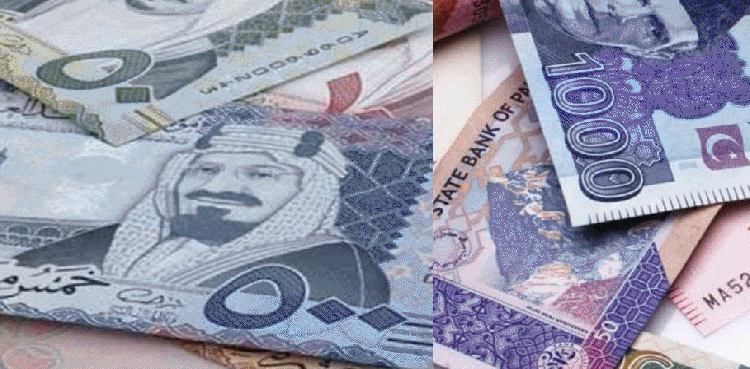
KARACHI, June 27, 2025 – The Saudi Riyal (SAR) has recorded a slight increase against the Pakistani Rupee (PKR) in the open market, reaching a buying rate of Rs75.64 today, up from Rs75.63 on June 26 and Rs75.59 on June 24, according to currency dealers. The selling rate also rose marginally to Rs76.21. This incremental uptrend reflects stable demand driven by remittance inflows and seasonal economic activity, reinforcing the Riyal’s critical role in Pakistan’s financial ecosystem.
1 SAR= 75.64 PKR
Introduction to the Saudi Riyal and Pakistani Rupee
The Saudi Riyal (SAR), Saudi Arabia’s official currency, is subdivided into 100 halala and managed by the Saudi Central Bank. Pegged to the US dollar, the Riyal maintains consistent value, making it a trusted currency for international trade and remittances. Its stability is vital for the millions of Pakistani workers in Saudi Arabia, whose earnings significantly support Pakistan’s economy.
The Pakistani Rupee (PKR), denoted by ₨, is Pakistan’s official currency, regulated by the State Bank of Pakistan under a managed floating exchange rate system. Introduced in 1948, the Rupee’s value fluctuates based on domestic economic factors like inflation, trade balances, and foreign exchange inflows. Its performance against major currencies like the Riyal is shaped by market dynamics and remittance trends.
Importance of the Saudi Riyal for Pakistanis
The Saudi Riyal is a cornerstone of Pakistan’s economy due to the deep economic ties between Pakistan and Saudi Arabia. The Kingdom hosts a significant Pakistani expatriate workforce employed in industries such as construction, healthcare, and services. In May 2025, remittances from Saudi Arabia amounted to $913.3 million, making it the largest source of Pakistan’s remittance inflows, as reported by the State Bank of Pakistan. From July 2024 to May 2025, total remittances reached $34.9 billion, a 28.8% increase from the previous fiscal year, underscoring the Riyal’s pivotal role in bolstering Pakistan’s foreign exchange reserves.
For Pakistani households, the SAR-PKR exchange rate directly impacts purchasing power. Today’s rate of Rs75.64 means that converting 1,000 Saudi Riyals yields Rs75,640, a slight improvement over yesterday’s Rs75,630. This increase enhances the value of remittances, supporting families with expenses like education, healthcare, and daily necessities.
Impact of Exchange Rate Movements
The marginal strengthening of the Saudi Riyal to Rs75.64 has immediate and broader economic implications. For individuals, the higher rate boosts the value of remittances, providing relief amid rising living costs in Pakistan. Businesses engaged in trade with Saudi Arabia, particularly in oil and petrochemical imports, benefit from the Riyal’s stability, ensuring predictable costs. However, a stronger Riyal could slightly elevate import expenses, impacting Pakistan’s trade balance.
On a macroeconomic level, the SAR-PKR exchange rate influences Pakistan’s foreign exchange reserves and economic stability. The recent uptick supports the Rupee’s value, helping mitigate import-driven inflation. Earlier in June, the Rupee faced depreciation pressures against major currencies, but steady remittance inflows, particularly from Saudi Arabia, have helped stabilize reserves, which surpassed $11 billion in October 2024. A stable or appreciating Riyal strengthens Pakistan’s capacity to manage external debt and supports export competitiveness when the Rupee weakens.
Gold Rates Today in Pakistan
Looking Ahead
The slight rise in the Saudi Riyal’s value to Rs75.64 reflects ongoing market dynamics, with remittance flows and trade activities driving demand. Currency traders and policymakers are advised to monitor these trends closely, as even minor fluctuations impact remittances, trade costs, and economic planning. For Pakistani expatriates and their families, the Riyal’s strength remains a vital lifeline, reinforcing its role in sustaining Pakistan’s economic resilience.
Sources: State Bank of Pakistan, Forex Association of Pakistan
from ARY NEWS https://ift.tt/DlK5m4f
Comments
Post a Comment